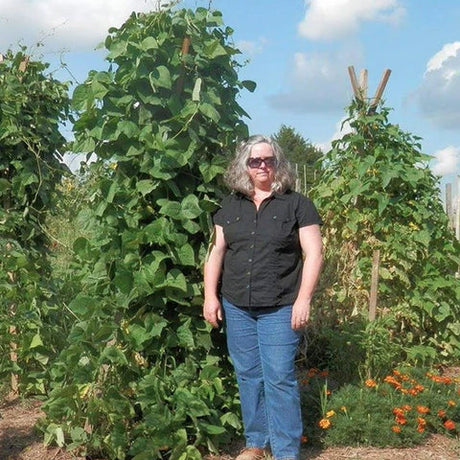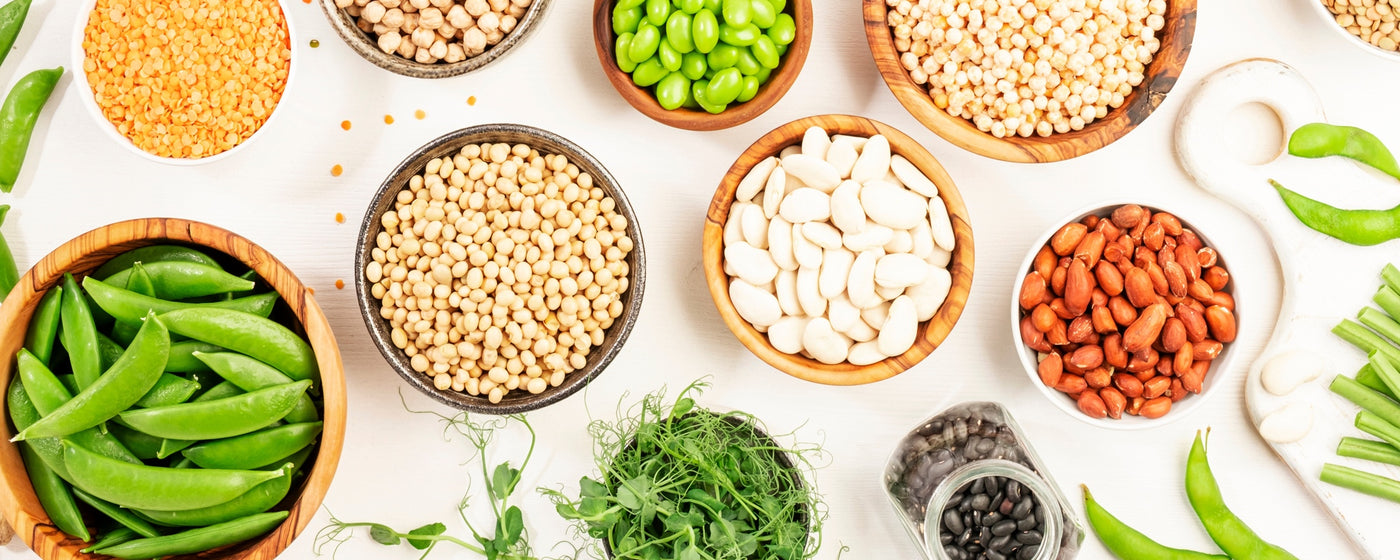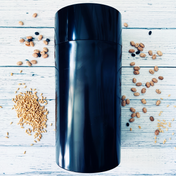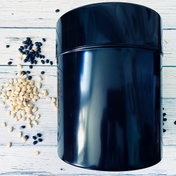|
About Peas
Peas are a cool season vegetable, and do best in a climate where there are two months of cool growing weather, either spring planting in the northern regions or fall planting in the warmer, southern regions. They are hardy to frost and light freezes.
Peas have smooth or wrinkled seeds. Most of the varieties grown are wrinkled seed, since these are sweeter and more flavorful. The advantage of smooth seed is its toughness in withstanding rot in cold, wet soil, although many wrinkled seed varieties are now treated with a mild fungicide to prevent rotting. Plan on an average of 25-60 plants per person depending on how much you want to freeze, dry, or can for winter. Pole and climbing peas produce over a longer period and up to 5 times more than dwarf bush varieties.
When to Plant
The earlier the better. Seeds should be planted in the spring as soon as the ground can be worked. Do not plant in the hot summer months. Where winters are mild, a second fall crop could be planted in late summer, but where the summers are long and hot, this is not practical as the plants do not thrive, producing poor flowers and a disappointing crop. The simplest way to prolong harvest is to plant early, mid season, and late varieties at one time rather than sowing every 2 weeks. Gardeners with mild winters can plant peas in both spring and fall.
How to Plant
Plant dwarf varieties about 8 seeds to a foot, about 1/2 - 1" deep; and in rows 18-24" apart. Tall-growing varieties should be planted in double rows 4-6 inches apart, 2 1/2 feet between double rows. Supports for climbing vines can be put in at planting time, or just as seedlings are 3 inches high. Peas can cross-pollinate, so for seed-saving, space different varieties at least 150' apart. Dwarf varieties don't need a trellis if you plant them close together. For support use twiggy bush, chicken wire fencing, or weatherized trellis netting sold commercially for vine crops.
Peas have fragile roots and don't transplant well. While some gardeners recommend presoaking seeds, research has indicated that presoaked legume seeds absorb water too quickly, split their outer coatings, and spill out essential nutrients, which encourages damping-off seed rot. Yields can increase 50-100% by inoculating with Rhizobium bacteria.
How to Harvest
Peas are ready to harvest in approximately 60-70 days. When pods of the peas appear to be swelling with rounded pea forms visible, they are ready for picking. Take a test picking every day or so, and note the appearance of the pods with the sweetest peas. If the pods are left on the vines too long, they become tough and starchy. Pick black eyed peas slightly before maturity. They should still be a light green with a purplish eye. They are still easy to shell at this stage and taste delicious. Pick the pods just before cooking, since they, like corn, deteriorate quickly after harvest. Choose a cool morning, not the heat of the day, or just after a cooling rain. The edible pod peas should be picked when the pods are well developed, but before they become swollen with the outline of peas.
Peas usually develop from the bottom of the vine up. Pull firmly but gently, and hold the vine with one hand so it is not jarred loose from its support when picking. When peas start to ripen, pick them often, and pull all ripe pods present each time to encourage development of more pods; otherwise the crop stops developing. You can pick peas for about 2 weeks once they start coming. After the harvest, turn under the plant residues to improve the soil.
|












































